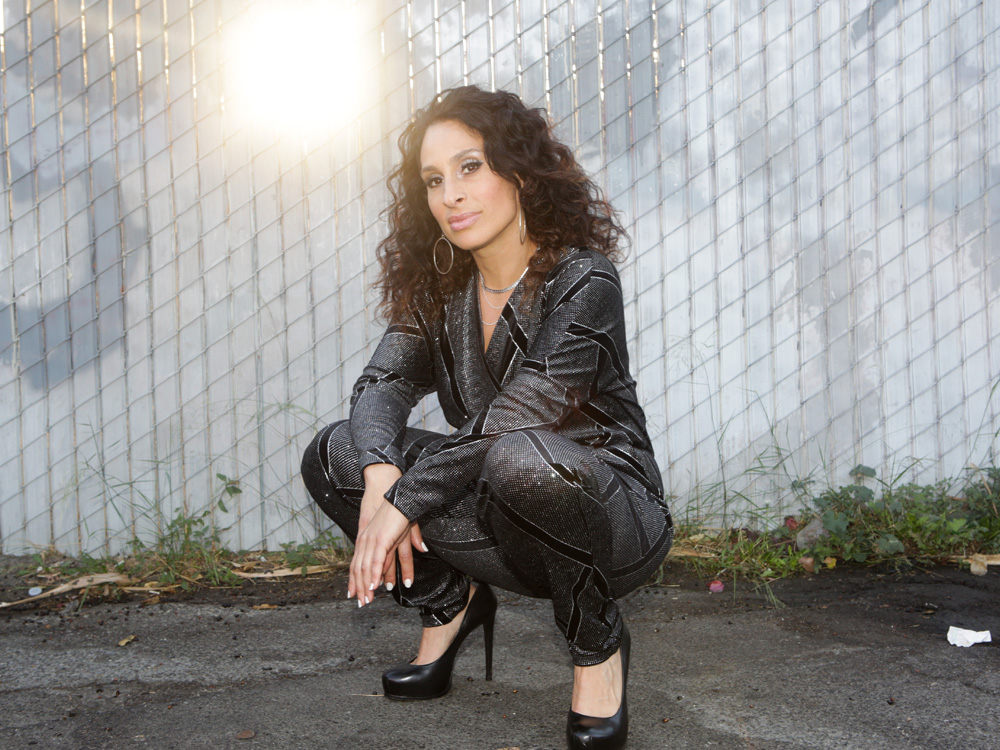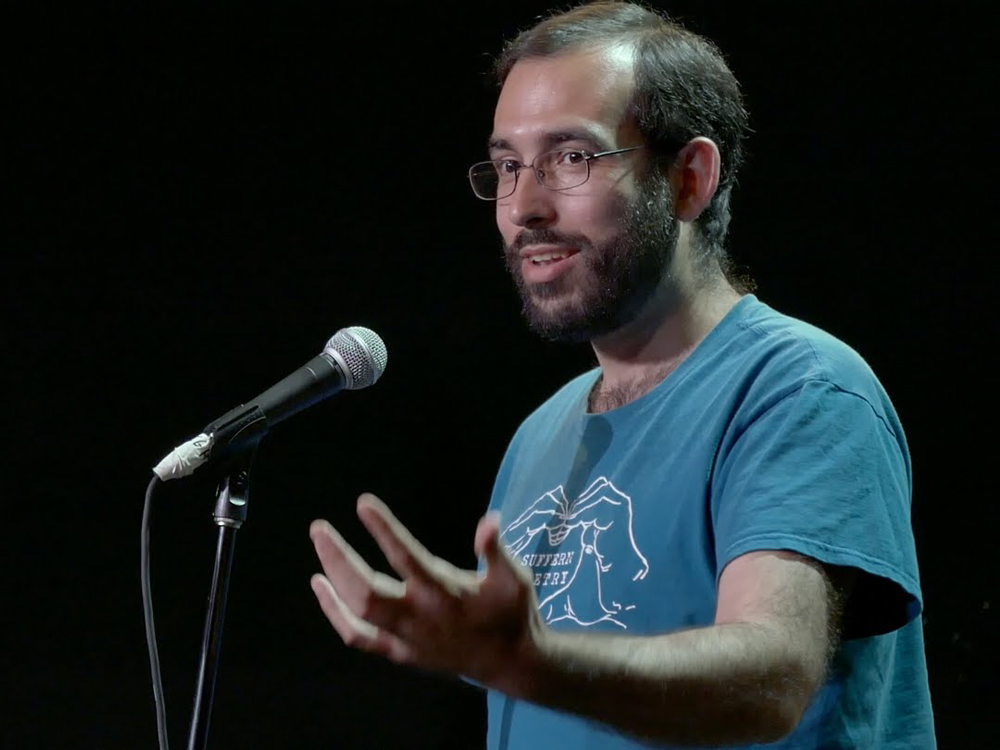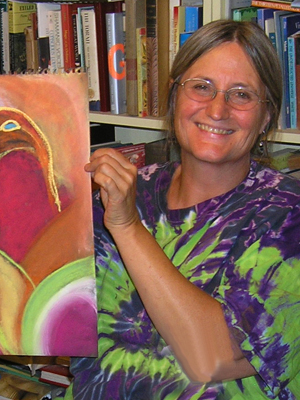The Roots and Wings Project Helps Prisoners Tell Their Stories
Jesse Bliss is a playwright, director, producer, poet, actress, veteran educator, and curriculum writer. She is the founder and creative director of the Roots and Wings Project, a theater company with a mission to provide a stage and space for voices of the unnamed, unknown, and misunderstood. The Roots and Wings Project is a recipient of a Cultural Pathways Grant from the California Arts Council and has received support from Poets & Writers for its prison programs. Bliss also produces Think Outside the Cage on KPFK 90.7 FM, a radio show voicing truth about mass incarceration, and was featured in Look What She Did!, a documentary directed by Julie Hébert.
 The very energy of prison is punitive, designed to drive love out. Perhaps this is why implementing the Roots and Wings Project’s ASCENSION, a P&W–supported theater and writing pilot workshop series at the California State Prison in Lancaster, a men’s prison, and the California Institution for Women, a women’s state prison in Chino, was nearly impossible.
The very energy of prison is punitive, designed to drive love out. Perhaps this is why implementing the Roots and Wings Project’s ASCENSION, a P&W–supported theater and writing pilot workshop series at the California State Prison in Lancaster, a men’s prison, and the California Institution for Women, a women’s state prison in Chino, was nearly impossible.
Days and weeks of e-mail requests turned into months. Finally, the workshops were approved. On my first trip out to the prison in Lancaster, where the wind never stops blowing on the exaggeratedly long sidewalk stretches to the entrance, the facility said no to the first workshop session. There was no getting in to speak to anyone after a two-hour drive. On the second visit, it took me two hours to finally enter into A Yard and meet the inmates.
Once I was in, participants at both penitentiaries wrote from the very depths of their souls. Their stories brought to light experiences most could never imagine surviving, and exposed truths about how people are led to incarceration and kept captive with draconian sentencing.
Some of the participants have life without parole sentences. One student went into the prison system at eighteen, three days following his high school graduation. He’s been incarcerated for two decades, and in those years has developed a friendship with his victim’s wife—a friendship she initiated. He writes: “She saw beyond the cold written record of my past into the present, to the core of who I really am.”
Another participant was sixteen months away from her release from prison when she was given a life sentence for a domestic violence charge. Many of the women express that they were put in prison for defending themselves against abusive men. I don’t ask, but if they share about their case in our writing workshops, I lovingly listen. Anna, a workshop participant, writes: “WOMAN. To be strong yet assumed weak, to work and love harder, yet be given less—less pay, less honor, less respect—for our weakness is our strength, our tears our freedom, to feel, to be: humanity in a world of insanity.”
One of our students grew up in a home where both his parents were drug users and dealers. The house was always getting shot up. His diaper was perpetually full. He grew to become what he knew and, while addicted to drugs, murdered someone over a twenty-dollar debt. He is one of the greatest keepers of peace I’ve ever known and a passionate advocate for helping others to transform and heal despite unthinkable intergenerational trauma. He often recites Shakespeare by heart.
Another student played one of the most stunning reggae songs on the guitar that I’ve ever heard called “Beautiful Day.” How, in there, does a human being author that song? He also eloquently writes: “Prison beds are expanding instead of consciousness.... You’ll see one electric fence with prisoners on both sides of it, society is on lockdown and they don’t even know it, out of necessity prisoners become poets.”
We culminated the workshops with powerful readings described in a student’s letter this way: “Soon, the room was bristling with hope and with stories of our children, our mothers, our wives, our communities, even our freedom. And when we returned to the dark confines of our cells, we brought with us a deeper, brighter, lingering purpose in our lives.”
We laughed. We cried. We read. We talked. We listened. We loved, all in the spirit of one of our writer’s words: “By finding the courage to speak up!”
With support from Poets & Writers, and in partnership with Unlock Tomorrow and Tia Chucha’s Centro Cultural and Bookstore, the Roots & Wings Project will hold a second series of workshops this fall at the California Institution for Women.
Support for this event was provided, in part, by Poets & Writers, thanks to a gift from Diana Raab. Additional support for Readings & Workshops in California is provided by the California Arts Council, a state agency, and the National Endowment for the Arts, a federal agency, and by the Friends of Poets & Writers.
Photo: Jesse Bliss (Credit: Angela L. Torres).




 Rockland Poets, formerly known as Suffern Poetry, has been hosting monthly poetry open mics and slams in the Lower Hudson Valley’s Rockland County since 2011. We’re a pretty small organization, currently run by seven volunteers, all of whom are residents of Rockland County or northern New Jersey. We run our events because art and community are vital. Poetry is an accessible art form in that you don’t need any special training or tools to create poems or to appreciate them. In the spirit of that accessibility, all of our events are open to the public and almost all incorporate open mics, where anyone can sign up to share their work. The grants we’ve received through Poets & Writers over the years have been of great importance to keep these events open and running.
Rockland Poets, formerly known as Suffern Poetry, has been hosting monthly poetry open mics and slams in the Lower Hudson Valley’s Rockland County since 2011. We’re a pretty small organization, currently run by seven volunteers, all of whom are residents of Rockland County or northern New Jersey. We run our events because art and community are vital. Poetry is an accessible art form in that you don’t need any special training or tools to create poems or to appreciate them. In the spirit of that accessibility, all of our events are open to the public and almost all incorporate open mics, where anyone can sign up to share their work. The grants we’ve received through Poets & Writers over the years have been of great importance to keep these events open and running. Anyone who has survived more than a decade or two on this planet has stories to tell. Often, however, people who struggle with addiction have not had the opportunity to sit down and write their stories, not even for themselves. For the clients I have worked with in recovery, any available energy they have is directed at surviving challenging life circumstances. Some have been incarcerated, and when the prison doors open, they land in a halfway house or in day treatment for addiction. Then suddenly, there is time and room to reflect on experiences, to tell the stories that need to be told.
Anyone who has survived more than a decade or two on this planet has stories to tell. Often, however, people who struggle with addiction have not had the opportunity to sit down and write their stories, not even for themselves. For the clients I have worked with in recovery, any available energy they have is directed at surviving challenging life circumstances. Some have been incarcerated, and when the prison doors open, they land in a halfway house or in day treatment for addiction. Then suddenly, there is time and room to reflect on experiences, to tell the stories that need to be told.